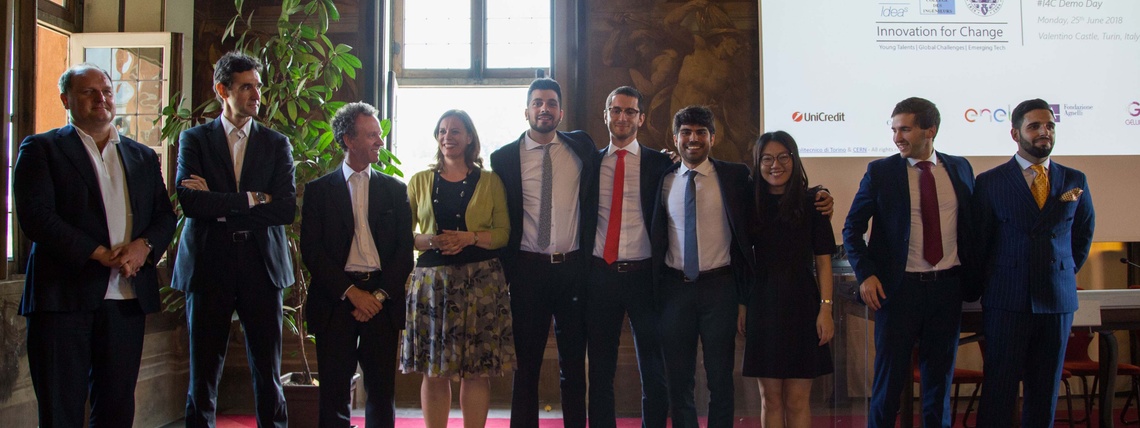The articles of the current edition are available on the new site.

Bottles that reduce microplastics in the oceans, detectors that prevent accidents and increase the safety of crowds at urban events, special tablets that allow the elderly to receive photos and videos that children and grandchildren post on social media: all the projects of sustainable businesses developed by 51 young people. Young students - MBA from Collège des Ingénieurs Italia and PhD from Politecnico di Torino together with the support of CERN Ideasquare - received 8 challenges from companies and institutions inspired from the global sustainable development goals of the UN with a common objective to work on innovative and scalable solutions to these challenges based on technologies of CERN & Politecnico di Torino.
The results of these months of intense work are 8 business ideas and related prototypes, which were presented today in the setting of the Castello del Valentino to an audience composed of investors, protagonists of the European business scene and students of CDI and Politecnico of Torino.
The prototypes and technical solutions adopted were examined today at the Castello del Valentino in Turin by a jury composed of Guido Crespi, Senior Partner & Managing Director of BCG Italia; Nicola Redi, Managing Partner of Venture Factory; Guido Saracco, Rector of the Politecnico di Torino and Charlotte Warakaulle, who is responsible for CERN's international relations. The jury awarded ARIA as winner of Innovation 4 Change 2018: sensors that map urban air pollution in real time, identify sources of pollution and minimise their impact on people. Three of its founders will be able to join in November the Web Summit 2018 of Lisbon, the biggest tech event of the world.
All these are impact innovation project's: a system that certifies the quantity of water used in the production of any good or service, not only in the agricultural world, to make consumers aware and decisive; a platform to catalogue the most advanced technological solutions being developed all over the world and companies that intend to create products based on those technologies; a network of cameras and detectors already present in the cities to monitor the flow of people during events and concerts, allowing a rapid outflow in case of accidents; a solution that eliminates the dispersion into the environment of polyethylene caps, responsible for much of the pollution by microplastics present in the seas and lakes; an App that increases the inclination of female students towards technical-scientific studies through the proposal of successful female models and situations in the real world; an on-demand service for recharging electric cars ("leave it where you want, get it recharged") and also helps to manage the peaks in consumption of the national energy network; a tablet designed for the elderly that allows them to follow effortlessly the news shared by their children or grandchildren on social (images, videos, messages), thus remaining participatory and active.
The companies and institutions that launched the challenges to the youngsters, helping them to develop their projects, were CERN, the City of Turin, ENEL, the Agnelli Foundation and UniCredit.